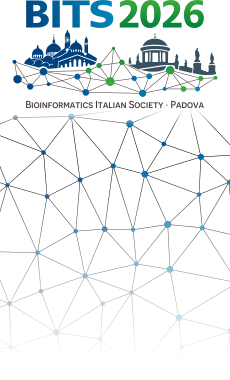Contract type: Co.Co.Co o tempo determinato
Career stage: 1 early stage, 1 post-doc
Degree: Statistics, Mathematics, Bioinformatics, Computer science, Computer systems engineering, biomedical engineering, Biotechnology.
Description:
The Unit of “Safety and insertional mutagenesis” is in charge of molecular analysis of clinical and pre-clinical studies to assess the safety and long term efficacy of the gene therapy treatment at San Raffaele Telethon Institute for Gene Therapy (SR-Tiget). Current gene therapy approaches deliver the therapeutic genetic material through retroviral vectors exploiting their ability of permanently integrate in the host genome of disease cells and thus stably correct the disease [1]. The molecular time course analysis of patient status and thus of the safety and efficacy of the treatment is performed through the study of vector integration sites, genomic coordinates where vector integrated, as published for two rare diseases in recent SR-Tiget works [2, 3]. The bioinformatics group in the Unit is aimed at (1) efficiently processing big data (genomic data) on high performance computing in distributed environments, (2) developing new algorithms, statistical methods and software tools to support the assessment of safety and long term efficacy in vivo [4] (computational and evolutionary biology) (3) developing new mathematical models to dissect the human haematopoiesis and its reconstitution in vivo after transplantation and identify the impact of proliferation stress in cell activity (such as proliferation and differentiation) in terms of safety and long term efficacy. The group of bioinformatics also supports projects related to HIV and clonal evolution.
We are looking for two candidates, one at the initial stage of career (post M.Sc. degree) and one at middle stage (post Ph.D. degree). Candidates will be involved based on the experience and attitude. Computational skills are preferred and will be the basis of day-by-day work (server interaction, job submission and monitoring, etc.). Developing skills/attitude are required to support autonomous work. Successful applicant with Ph.D. will also be involved in mathematical modelling with time course analysis of clones both for understanding and tracking in vivo the hematopoietic reconstitution but also for HIV clonal evolution [5]
For the middle career level, he/she should have documented research experience in computational biology. The applicant should be rigorous, reliable, well organized, and have excellent inter-personal skills. SR-Tiget is a world-wide key institute for gene therapy, the first European institute certified to administer gene therapy treatments. Positions are intended for full time work.
Requirements
The ideal candidate is seeking a long-term commitment. He/she is a young motivated and enthusiastic researcher/fellow, possibly committed to undertake a PhD program in Statistics, Bioinformatics or Computer Science/Engineering.
Preferred experiences/skills: theoretical and practical statistical approaches (FDR, parametric and non-parametric tests, etc), algorithm development; basic programming languages and statistical frameworks (i.e. Bash scripting, Python, R/Matlab).
References
Naldini, L. Ex vivo gene transfer and correction for cell-based therapies. Nature reviews. Genetics, 12(5), 301–15. doi:10.1038/nrg2985 (2011).
Biffi, A. et al. Lentiviral hematopoietic stem cell gene therapy benefits metachromatic leukodystrophy. Science 341, 1233158 (2013).
Aiuti, A. et al. Lentiviral hematopoietic stem cell gene therapy in patients with Wiskott-Aldrich syndrome. Science 341, 1233151 (2013).
Calabria, A. et al. VISPA: a computational pipeline for the identification and analysis of genomic vector integration sites. Genome Med. 6, 67 (2014). doi: 10.1186/s13073-014-0067-5
Maldarelli, F. et al. HIV latency. Specific HIV integration sites are linked to clonal expansion and persistence of infected cells. Science. 2014 Jul 11;345(6193):179-83. doi: 10.1126/science.1254194. Epub 2014 Jun 26.
Contact:
Please send your application including a synopsis of research interest and Curriculum vitae by email to: Andrea Calabria (calabria.andrea@hsr.it)
Starting date: From January 2017.




